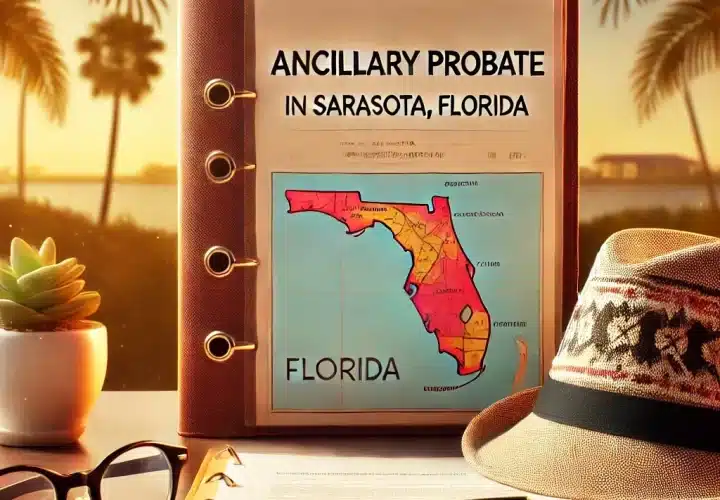You can’t go to jail for failing to pay a debt or a judgment. If you do not pay a debt or if a judgment is entered against you, this information can be reported to the credit bureau and made a part of your credit history. The credit bureau can report this information for seven years in your credit history.
If a judgment is entered against you, you are called a judgment debtor. A judgment is an order entered by a judge at the end of a lawsuit. A judgment lasts for 20 years which means that the person who obtained the judgment can collect on that judgment until it is fully paid for 20 years after it is filed with the clerk. Interest accrues every year as set by the Comptroller of the State of Florida.
A creditor who obtains a judgment against you is called a judgment creditor. A judgment creditor can require you to attend a deposition and give information about your income and assets.
The court can require you to give written information or testimony about your income, assets, property, employer and Social Security number. If a judgment is entered against you by a court, your wages or bank account may be taken from you to pay the judgment. This is called garnishment and attachment.
The garnishment law allows the judgment creditor to obtain a continuing writ of garnishment which orders your employer to deduct money from your periodic wages until you have paid off the judgment. Through a process called execution a creditor can collect money owed under a judgment. The judgment creditor pays a bond to the local sheriff to seize personal property owned by a judgment debtor so that it can be auctioned and the proceeds applied to pay the judgment.
Your home
If you own the home you live in, your home is protected from all creditors except those holding a mortgage or lien on your residence. You can exempt or protect your home and up to one-half acre of land from any forced sale if you live in an incorporated area. This also applies to mobile homes. If you live in an unincorporated area, you can protect up to 160 acres as homestead property.
Under most circumstances, a lien cannot be placed on your home for a debt. However, creditors who loan you money to buy, improve, or repair your home may put a lien on your home. Nonetheless, if a creditor has a mortgage on your home no matter what the purpose for the mortgage is you are not protected by the homestead exemption.
To protect your home, an affidavit describing your home and claiming it as your homestead must be filed with the court. This is different from the homestead tax form you file with the county property appraiser every year.
Your personal property
The Florida Constitution gives you the right to exempt up to $1,000 in personal property per person from confiscation by a creditor. The Florida Statutes allow you to claim $4,000 more per person in personal property as long as you do not make a homestead claim as described above. You can not claim this exemption if you owe child or spousal support. Unless the judgment creditor has a lien or security interest in this property, this constitutional exemption and the Florida Statute allows you to protect up to $5,000 per person worth of your property from execution or attachment.
This $5,000 can include wages and money held in a bank account. If you own more than $5,000 worth of personal property, you can choose which property to protect. If the judgment is only against you and not your spouse, your spouse is entitled to protect his or her interest in the property. Property that is held by a husband and wife is called tenancy by the entireties and cannot be divided and thus is not subject to the claims of creditors of the husband or wife individually. This applies to real property as well.
The judgment debtor and/or the debtor’s spouse must file an affidavit with the court and the sheriff to obtain the exemption and protect the property from the judgment creditor.
Your wages
Wages of the head of a family are exempt from garnishment unless the person’s net wages are more than $500 per week and the person has agreed in writing to allow wages to be taken to pay the debt. A head of family includes all persons who reside in Florida and who provide more than one-half of the support for a child or other dependent. Wages in a bank account that belong to a head of family retain their protection from being seized for six months even if the wages are mixed with money from other sources. If a head of family had not agreed in writing to allow the garnishment or attachment of wages, all the wages are exempt. You must file an affidavit with the court to declare your head of family status and protect your wages from being taken.
Persons who do not qualify as head of family will still have the protection of federal law which limits the amount of wages that can be garnished. The amount that you take home that is more than 30 times the federal minimum wage per week or 25 percent of your net wages, whichever is less, can be garnished by a creditor, under a continuing writ of garnishment until the judgment is paid in full.
Your vehicle
Your interest in a vehicle is exempt up to $1,000 of its value. However, you can combine the $5,000 exemption mentioned above with this $1,000 to have a total exemption of $6,000 for your vehicle or vehicles. This means that your vehicle cannot be taken to satisfy a judgment unless the value of the car, less all debts for which the vehicle is collateral, is greater than $1,000 or more if you decide to use some or all of the $5,000 exemption previously described.
If a judgment creditor or sheriff takes your vehicle under an execution and its value to you is less than the value that you claimed as exempt as above described, you can apply to the court for recognition of your exemption and request the return of your vehicle. Your affidavit of exemption should be filed with the court and the sheriff.
Other property and income
All professionally prescribed health aids used by you or your dependents are exempt from being taken by creditors. Other types of income, including Social Security benefits, workers compensation, unemployment benefits, disability benefits, Veteran’s benefits and retirement benefits are exempt from garnishment. Pensions, 401K plans, life insurance proceeds, college savings funds, medical savings accounts and earned income credits from your taxes are also exempt from collection.
Procedure for claiming your exemptions
Garnishment situations: You may claim your exemptions by filing an affidavit with the court describing the exemption and your claim to it. Your affidavit must also be sent to the judgment creditor and any attorney for the judgment creditor. The judgment creditor must then file an affidavit with the court within two days to challenge your exemption. If the judgment creditor doesn’t object by filing an affidavit, you can ask the court for a hearing to stop the garnishment and have your exempt wages returned to you. Notice of the hearing must be given to the judgment creditor.
Under current Florida law, if your wages or bank accounts are going to be garnished, you will not receive any notice until after the wages have already been withheld or, a hold placed on your bank account. The judgment creditor must send you a copy of the writ of garnishment, a copy of the answer filed by your employer or bank and a notice telling you about your right to request that the court stop the garnishment or execution.
Other type of collection actions: Please consult a consumer law attorney as the procedure to claim your homestead and personal property exemptions are different. Furthermore, before you take action to stop any collection activity described above please consult with a consumer law attorney to make sure that you are doing it right and that you get the relief offered to you by law.
Your spouse or any other person who has an ownership interest in the property may file an affidavit showing the right of ownership and requesting the court to return the property. The judgment creditor may contest the claim of exemption and request a hearing.
Transfers of property that are fraudulent or are made solely to keep the property from creditors may cause the property to lose its exempt status.
If you have any questions or would like additional information regarding this article please write us at Firm@Scovills.com or call us at 941-365-2253.



